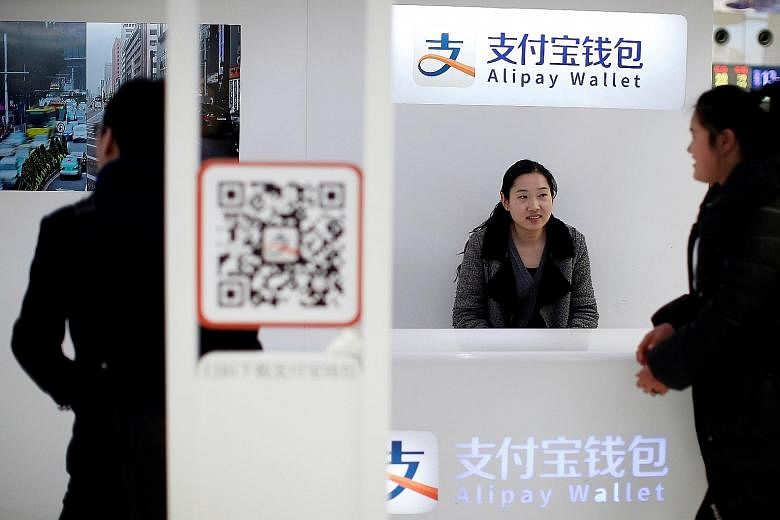With a mobile phone in hand, I can practically pay for anything in Beijing, from meals at neighbourhood eateries to electricity bills and taxi fares.
But I also learnt that mobile payments could come in handy in the most unexpected situations.
A few weeks ago, I was at my local wet market's sundry shop, trying to get a few items like clothes hangers for my new house. I moved to Beijing in June to begin my posting to this newspaper's China bureau.
I had only 100 yuan (S$20) with me and the bill came up to around 120 yuan. I told the shop owner I had to take out a couple of items because I didn't have enough cash.
"Oh, I accept WeChat Pay," she said, whipping out her mobile phone for me to scan the QR code to transfer the payment to her via the popular social messaging app.
Within seconds, I paid for my shopping. Simple and hassle-free.
According to estimates by research company eMarketer, some 195 million people, or a third of all mobile phone users in China, will pay for goods and services at the point of sale with their phones this year.
The research company predicts that number will grow to 332.3 million, or 49 per cent of the nation's smartphone users, by 2020.
This makes China the world's largest and fastest-growing market for contactless payments via mobile phone. Unlike other developed countries, Chinese users have leapfrogged credit cards to embrace mobile payments in their daily lives.
But the prevalence of mobile payment on the mainland also means that fraud and scams are on the rise.
According to a report by China Daily, one of the main methods of fraud is through payment viruses, which can steal users' bank information. More than 25 million users were affected last year.
Other than paying merchants, mobile payment apps like WeChat Pay and Alipay also make it easier for people to transfer money to each other.
Once, this saved me from making a wasted trip.
I was going to the Olympic Forest Park for a jog and I brought just two cards - a subway card and a bank card - and my mobile phone.
As luck had it, my subway card ran out of money, and there was no option to use the bank card to top it up at the automated ticketing machine.
Thanks to mobile payment, I convinced a passer-by to use cash to get me a 4 yuan single trip ticket, while I transferred the money to her instantly via the phone.
With all the conveniences mobile payment brings, it also means that losing your phone is as good as losing your wallet, and more.
I had to learn it the hard way when my mobile phone was stolen during a reporting trip to Shanghai last month.
It was no longer a simple case of calling the telco to get the line suspended. It meant several more calls and online paperwork to get the various payment options suspended or cancelled.
So now I have to remind myself that my phone is no longer just a phone. It is also my wallet.

